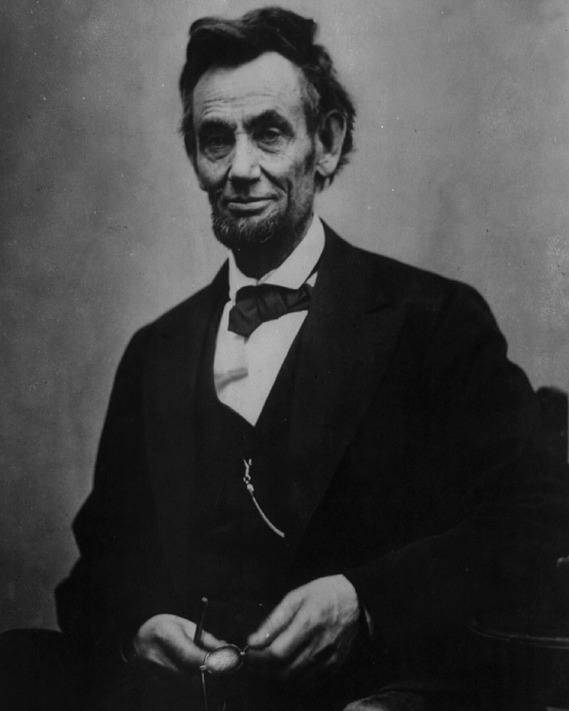A House Divided
There’s lots of phrases that have worked their way into everyday language that have origins in the Bible:
- The blind leading the blind (Matthew 15:13-14)
- By the skin of your teeth (Job 19:20)
- Fly in the ointment (Ecclesiastes 10:1)
- See eye to eye (Isaiah 52:8)
- Wash your hands of the matter (Matthew 27:24)
- The writing on the wall (Daniel 5:5)
- A house divided against itself cannot stand (Mark 3:25)
There are many other phrases that aren’t recorded here (kinda like John 20:30).
It was on June 16, 1858 that 49-year-old Abraham Lincoln, who had just received the Illinois Republican Party’s nomination as that state’s US Senator, delivered an address, which in part said:
“A house divided against itself, cannot stand. I believe this government cannot endure, permanently, half slave and half free. I do not expect the Union to be dissolved — I do not expect the house to fall — but I do expect it will cease to be divided.”
Was this a foreshadowing of the Civil War?
A House Divided and Everlasting Sin
http://www.usccb.org/bible/readings/012819.cfm
Hebrews 9:15, 24-28
Mark 3:22-30
It was on June 16, 1858 that 49-year-old Abraham Lincoln, who had just received the Illinois Republican Party’s nomination as that state’s US Senator, delivered an address, which in part said:
“A house divided against itself, cannot stand. I believe this government cannot endure, permanently, half slave and half free. I do not expect the Union to be dissolved — I do not expect the house to fall — but I do expect it will cease to be divided. It will become all one thing or all the other. Either the opponents of slavery will arrest the further spread of it, and place it where the public mind shall rest in the belief that it is in the course of ultimate extinction; or its advocates will push it forward, till it shall become lawful in all the States, old as well as new — North as well as South.”
This became known as Lincoln’s House Divided Speech. Lincoln’s opponent for the senate seat was incumbent Democrat Stephen A. Douglas. Douglas was a leading advocate of popular sovereignty, the status that would allow settlers in each new territory to decide their own status as a slave or free state. Lincoln felt that the country would cease to be divided over the subject of slavery. Slavery would either become extinct throughout all of the states, or it would become legal in all states. Declaring this was meant to be a call to action to those supporting abolition of slavery.
Despite a lively campaign, Lincoln lost the senatorial election to Douglas, but in a rematch in the 1860 presidential election, Lincoln beat Douglas and two other candidates to become our 16th President of the United States. Between the time of Lincoln’s election in November 1860 and his inauguration in March 1861, South Carolina, Mississippi, Florida, Alabama, Georgia, Louisiana, and Texas, all slave-holding states, seceded from the United States of America, which became known as the Union. While the Confederate States of America were never officially recognized by any other country as a legal entity, the United States were now essentially divided. Did it fall? Well, some 750,000 plus or minus casualties over the 4 years of fighting certainly qualifies as a period of “not standing.”
But in the end, it became as Lincoln had predicted; the house would “cease to be divided,” sending slavery into “the course of ultimate extinction.” The Union would be reunited, as the Confederate States of America “just disappeared” after Lee’s surrender at the Appomattox Court House on April 9, 1865. Abraham Lincoln would be assassinated 5 days later.
There’s lots of phrases that have worked their way into everyday language that have origins in the Bible:
- The blind leading the blind (Matthew 15:13-14)
- By the skin of your teeth (Job 19:20)
- Fly in the ointment (Ecclesiastes 10:1)
- See eye to eye (Isaiah 52:8)
- Wash your hands of the matter (Matthew 27:24)
- The writing on the wall (Daniel 5:5)
- A house divided against itself cannot stand (Mark 3:25)
There are many other phrases that aren’t recorded here (kinda like John 20:30).
Why do we use these phrases? Well, maybe it’s because saying, “I can see the writing on the wall” seems more civil than saying, “Oh my!" From the yelling of the boss about my complete lack of sales this month, I’m pretty sure I’m going to be fired.”
Or when you “see eye to eye,” there is a sense of equality, perhaps even mutual respect.
When you “wash your hands of the matter,” are you really doing something as dramatic as Pilate in Matthew 27:24?
When Pilate saw that he was not succeeding at all, but that a riot was breaking out instead, he took water and washed his hands in the sight of the crowd, saying, “I am innocent of this man’s blood. Look to it yourselves.”
So why did Abraham Lincoln start his nomination acceptance speech with, “a house divided against itself, cannot stand?" Starting a speech with a familiar phrase, something that the audience may have heard from the pulpit but is also relevant to the message you want to deliver both gets attention and frames your argument. If you read and reread the speech, you would conclude that he sees the division in the country and wants to reach a point of NOT being divided, so that the house (or United States in this case) will stand as a country with a shared belief. He goes on (not shown above) to describe some of the bad laws and decisions regarding slavery including the infamous Dred Scott Decision, to state his case for that shared belief to be the elimination of slavery.
Where did that “house divided stuff” come from? Today’s Gospel reading!
The scribes weren’t just dropping in. They had to travel 80 miles or so to get to Capernaum from Jerusalem. They were on a mission to discredit Jesus. “He’s possessed by Beelzebul,” “By the prince of demons he drives out demons,” and “He has an unclean spirit,” they say. That should be enough to get the crowds to think twice about following the Jesus fellow.
Jesus summons the scribes. I’m thinking that’s one of those “writing on the wall” moments.
He speaks to the scribes in parables. Maybe it’s easier to remember something told to you in story form. Jesus lays out the logic for rebuking the scribes, saying “How can Satan drive out Satan?”
If a kingdom is divided or does not work together, it is no longer a kingdom.
Every carpenter’s son knows that a house divided against itself is structurally unsound and will fall down.
Therefore, it is ridiculous to think that Jesus is in cahoots with the devil to drive out demons, because the very act of driving out demons would be against the deeds of the devil in planting those demons in the first place. Satan would be rising up against himself, causing division. Satan would be marginalized. Won’t happen.
You see, Satan is the strong man in the next part of the parable. Satan exists and is strong and is the source of the demons within those possessed. Not just anyone can get into those possessed by the strong man. But if there was a way to tie up the strong man, you can plunder his house. Only Jesus with the help of the power of God through the Holy Spirit can tie up the strong man (Satan), and plunder his house. The demons are expelled, and those previously afflicted are no longer possessed.
Jesus offers up a final thought on sin. It is quite reassuring to hear him say that all sins and all blasphemies will be forgiven. But then he qualifies that by describing the exception. “Whoever blasphemes against the Holy Spirit will never have forgiveness, but is guilty of everlasting sin”.
Since the scribes were saying that Jesus “has an unclean spirit”, they may have, at that moment done the unforgivable. I wonder if they “saw the writing on the wall”?

